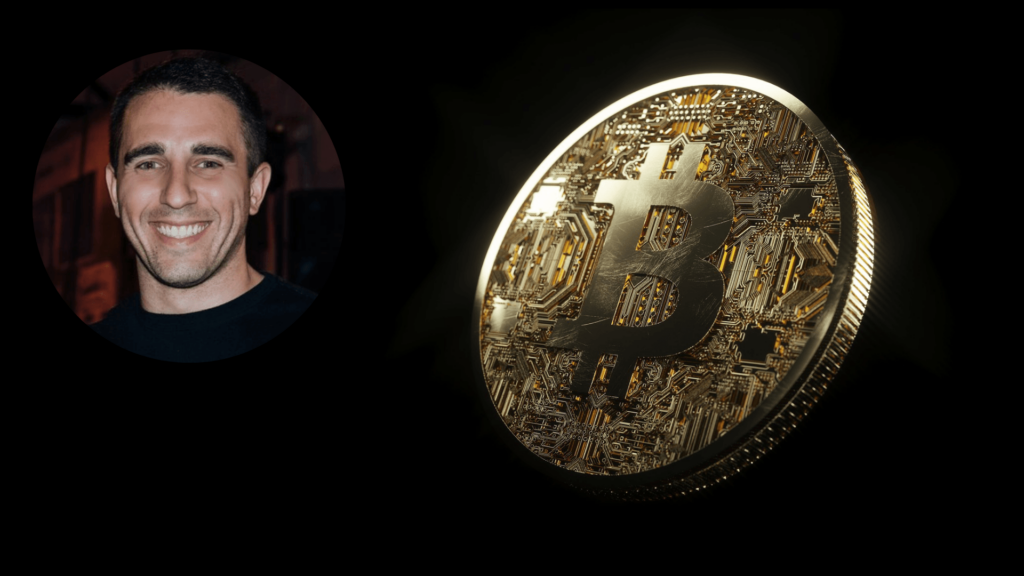
Morgan Creek Digital co-founder and popular Bitcoin bull, Anthony “Pomp” Pompliano, recently made a couple of big claims. First, Bitcoin will be at $100,000 within two years. Second, half of his net worth is in crypto.
Pomp recently unpacked these claims in an interview with the crypto publication Cointelegraph.
A New Recessive Period
Pomp didn’t give any formulae that he may have used to make his $100,000-by-2021 prediction. Instead, he explained his forecast in general terms of market economies.
Any time that you have a fixed-supply asset, demand increases, and then the price has to go up,
said Pompliano. And so, that leads to the question as to what will make the demand increase; and I think that there’s a number of factors that are important to call out.
The first of those factors, according to Pomp, is the “macro environment”, including the emergence of a “new recessive period”.
Bitcoin vs. Global Instability
The second of those factors, not entirely removed from the first, is global instability and trade wars.
As we see things playing out with Mexico and China on the trade front and then also the global instability around Hong Kong, Iran, Argentina, Venezuela, etc., more and more people want to have exposure to an algorithmically driven monetary system,
said Pompliano. They are not comfortable continuing to expose their wealth to a human-led system in which we know that these leaders and elites are openly manipulating the currencies and the economies in which we live.
There’s a lot to unpack there. Pomp isn’t the only one to talk about Bitcoin as a safe haven asset. Neither is he the first to link the rise of crypto is due to America’s recent hostile trade policies. However, the idea is growing in popularity. That Bitcoin is rising to protect assets from the US-China trade war is not a new idea. The reference to Mexico came from US President Donald Trump’s recent threats to put tariffs on Mexico. President Trump called off the tariffs when Mexico agreed to activate a National Guard to interrupt the flow of migrants.
Pomp is, however, one of the first to set Iran among the countries rapidly adopting Bitcoin as their fiats fail. Iran – also having fiat problems because of America’s aggressive trade policies – also has a government which is openly against crypto.
More and more people want to have exposure to an algorithmically-driven monetary system. They are not comfortable continuing to expose their wealth to a human-led system in which we know that these leaders and elites are openly manipulating the currencies and the economies in which we live.
Late last month, the Iranian government seized some thousand mining rigs. Supposedly this was because the rigs were causing problems with the country’s under-developed electrical infrastructure. Whether or not that’s really the case, Iran seems unlikely to join the Bitcoin boom as have Turkey and Venezuela.
Bitcoin as the New Global Reserve Currency
Pomp also attributes the rise of crypto to changes in how society operates in terms of public acceptance of the currency. This change will soon lead to crypto replacing global reserve currencies like the US dollar, according to Pomp.
If you go all the way back to ancient Athens, if you look at the Roman Empire, all the way on up to today with the United States, that great military superiority has always led to control of the global reserve currency,
said Pompliano. The problem is, where we are going in a more cyber or digital world, the bombs, […] the fighter jets, etc., aren’t nearly as important as they used to be.
Pompliano’s statement is perhaps an issue of confusing correlation with causation. In the case of the US as well as the Roman Empire, the nation-state that controlled the reserve currency was not necessarily the most militarily advanced. Instead, it was the largest in terms of technological innovation, cultural diffusion, and reach in terms of trade. Countries didn’t adopt a reserve currency because of fear of military intervention so much as out of convenience. Sparta was famously more militarily capable than Athens. However, Athens was a greater cultural centre and so trading via that system was more convenient and profitable.
If you’ll forgive that digression, Pomp’s statement still isn’t necessarily wrong in the basic principle. Our social, technological, and financial systems have long been evolving beyond the service of the nation-state, making a transnational currency more viable. Systems like the Euro have attempted to address this need but require national adoption. A decentralised currency allows the individual to adopt the currency even if their government won’t. People are seeing this and adopting crypto.
Project Libra
Pomp also said that the demand for Bitcoin will rise further after the launch of Project Libra. The Facebook-backed cryptocurrency will come with its own wallet, Calibra. It will also expose over two billion Facebook users around the world to crypto. Subsequently, the world will become more open to Bitcoin, according to Pomp.
The Libra currency, I think, will benefit Bitcoin by helping to educate, helping to familiarise folks with digital currencies in general,
said Pompliano. And then Calibra, the wallet, today will only support Libra. I believe in the future it will support Bitcoin, Ethereum, and other cryptocurrencies.
Perhaps the biggest obstacle to Libra adoption is the fact that it is spearheaded by Facebook. The social media giant has long been plagued with problems related to collecting, storing and selling personal data. That is in addition to hacks and the use of data by unethical companies. Pomp attempted to brush this off.
I don’t think that the data issues, that Facebook has been labelled with recently, are solely Facebook’s issue alone,
said Pomp. I actually think that most large technology companies have similar issues.
He further said that an understanding of cryptocurrencies by the public and having a cryptocurrency linked to social media will lead to increased transparency. In this way, according to Pomp, Libra will make Facebook a more transparent and trustworthy platform.
How Much Should You Invest?
I would make the argument that having 100% exposure to fiat currencies is a really bad idea; because if one of those fiat currencies, that you have 100% of your wealth in, either hyperinflates or fails, you’ve got a lot of problems.
The interview ended with a question of Pomp’s claim that more than half of his wealth is invested in cryptocurrency. Pomp responded by saying that he is a finance expert. As such, he allows himself to be more bullish with his own money than he might recommend others to do. He also pointed out that the real risk is not owning crypto.
I would make the argument that having 100% exposure to fiat currencies is a really bad idea; because if one of those fiat currencies, that you have 100% of your wealth in, either hyperinflates or fails, you’ve got a lot of problems,
said Pomp. Just like there is an encouragement of diversification in other assets, I also think, in what I’ll call your ‘cash position’, there needs to be more diversification.
Pomp also said that he doesn’t have any kind of figure that he recommends. Rather, this should vary based on the individual case.
Pompliano didn’t go into the calculations behind his $100,000 forecast. Neither did he expand his decision to put half of his wealth in Bitcoin. However, he did give a great top-down view as to why the value of Bitcoin is only likely to increase. He also gave some strong reasons for why more holdouts should think about partial adoption one more time.



